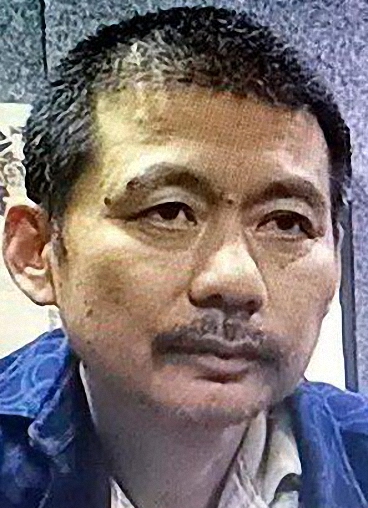
Wen Liehong
The head of a criminal gang from Changsha, Hunan province, was sentenced to life imprisonment and confiscation of all property on Tuesday for 15 crimes, including organizing and leading a mafia-style criminal gang, according to the Changde Intermediate People's Court.
The leader, Wen Liehong, had gradually accumulated huge wealth since 2002, when he set up casinos in major hotels in Changsha. He organized others to participate in gambling and loaned money at usurious rates, the court said in its verdict.
From 2005 to 2009, Wen hired several people to help him collect debts using violence. In 2010, he set up a pawnshop and loaned money at high interest. The next year, the gang grew by recruiting unemployed people, the verdict said.
The criminal organization had a strict structure and clear hierarchy, with one leader, three key members, five active participants and 16 other members. When police cracked the organization, they seized cash and property valued at 1.2 billion yuan ($178 million), the court said.
They used the illegally acquired wealth to buy weapons, provide housing and travel to its members, and support the organization's survival and development.
The organization and its members committed 84 illegal acts, including intentional injury, illegal detention, fighting and forcing others to trade.
Their criminal acts resulted in the closure of several private companies and the suicide of a bank chief, which seriously damaged economic and social order, it said.
Wen's 15 crimes included fraud, bribery and perjury. The three key members of the gang were sentenced to prison terms of 25 years, 13 years and 11 years. The other 21 defendants will be sentenced later, the court said.
The Communist Party of China Central Committee and the State Council released a document in January last year to begin a three-year campaign against criminal organizations. By the end of last year, 1,082 gangs had been eliminated and 1,620 guns had been confiscated. Between January and November, China saw a decline of 27.6 percent in gun-related crimes from the previous year, according to coordinators of the campaign.
As gangs and organized crimes are often deeply interwoven with corruption, the campaign would also target local officials who offer protection to the criminals, the document said.
In October, the Central Commission for Discipline Inspection gave five examples of typical cases of "protective umbrellas" - corrupt officials who shield mafia-style criminal gangs. Names included Zhou Fubo, former director of the Hunan office for Comprehensive Management of Social Security.
In December 2014, when Changsha police started investigating Wen, he sought help from Zhou, who was deputy head of the provincial public security department at the time. The two became friends and Zhou gambled regularly in Wen's casinos, the CCDI statement said.
In 2015, Zhou ordered the Changsha police to suspend the investigation and coordinated with Wen and the whistleblower. The police subsequently withdrew the case. Zhou was placed under investigation by Hunan's discipline inspection authorities in March 2017.
Ran Saiguang, a law professor at National Police University for Criminal Justice, said many gangs have set up companies to conduct illegal activities while concealing their true nature. They typically bribe grassroots officials to get protection.
Only by eliminating the corrupt officials who provide shelter for gangsters can the public achieve true happiness and security, Ran said.


